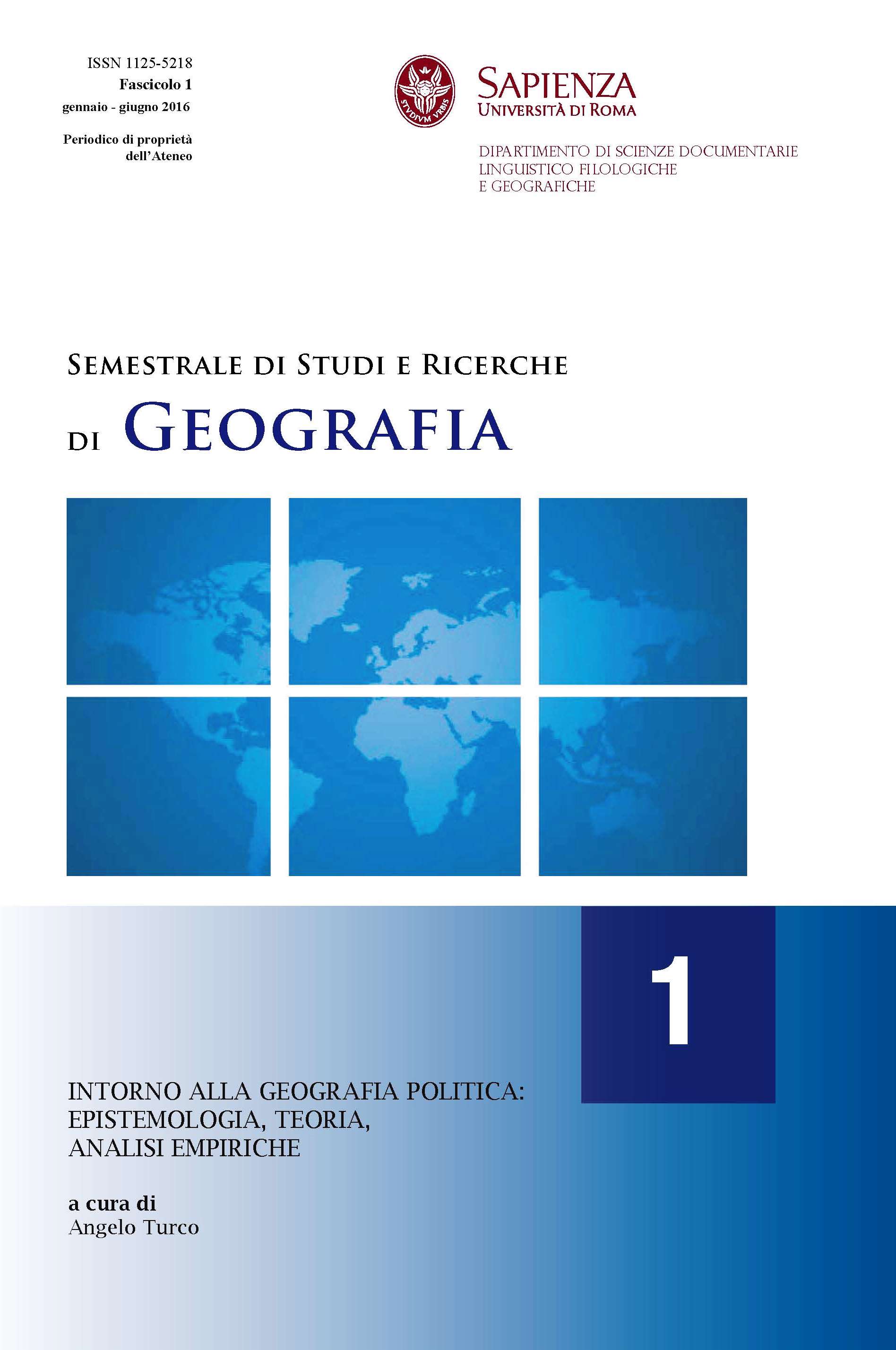La geografia che resta delle Primavere arabe
DOI :
https://doi.org/10.13133/1125-5218.15066Résumé
The Remaining Geography of the Arab Springs
Within the proposed perspective, trying to understand what the “Arab Springs” said (and still say) and how they said it (or how they keep saying it), what politicalness and spatiality dispositives they produced (if they did), suggests a revision of our traditional approaches.
The issue is related to the actualness and the critical tools that political geography must have interpreting “what is happening”. And this without being confused with the geopolitical version of the events spread by the media; but also without renouncing the attempt to investigate the issues related to the transformation of political territoriality. This is a preliminary contribution to the debate. After developing a fundamental departure hub, namely the need to question the category of “the Arab world” and/or Arabness (understood as an epistemic hitch), we try to draw some trails, testing the guidance detectors for research.
These suggest to analyse, among others, the political nature of the claims of the Springs, the scales of local territorial berths, the network dispositives of communication and the new patterns of human mobility.
La géographie qui reste des Printemps arabes
Dans la perspective proposée, tenter de comprendre ce que les «Printemps arabes» ont (ou veulent encore) dire, et comment l’on dit (et le disent-ils), si et quels dispositifs de politicité et de spatialité ont-ils laissé émerger, amène à remettre à l’épreuve nos démarches. La question est liée à l’actualisation et aux possibilités critiques que doit avoir la géographie politique dans l’interprétation de «ce qui est en train de se passer ». Et cela sans se confondre avec une version géopolitique des événements,
d’approche médiatique, mais sans renoncer à la tentative de saisir les problématiques concernant les transformations de la territorialité politique. Ce n’est qu’une contribution préliminaire au débat. Il s’agit, après avoir développé un enjeu fondamental de départ – la nécessité de la mise en discussion de la catégorie de «Monde arabe» et/ou d’arabité (ici saisie en tant qu’entrave épistémique) – de tracer quelques pistes, en mettant
à l’épreuve des balises d’orientation de la recherche, lesquelles suggèrent
d’appréhender, entre autres, la politicité des revendications des Printemps, les échelles des ancrages territoriaux, les dispositifs réticulaires de la communication et des mobilités humaines.
Téléchargements
Numéro
Rubrique
Licence
Gli autori che pubblicano su questa rivista accettano le seguenti condizioni:- Gli autori mantengono i diritti sulla loro opera e cedono alla rivista il diritto di prima pubblicazione dell'opera, contemporaneamente licenziata sotto una Licenza Creative Commons - Attribuzione che permette ad altri di condividere l'opera indicando la paternità intellettuale e la prima pubblicazione su questa rivista.
- Gli autori possono aderire ad altri accordi di licenza non esclusiva per la distribuzione della versione dell'opera pubblicata (es. depositarla in un archivio istituzionale o pubblicarla in una monografia), a patto di indicare che la prima pubblicazione è avvenuta su questa rivista.
- Gli autori possono diffondere la loro opera online (es. in repository istituzionali o nel loro sito web) prima e durante il processo di submission, poiché può portare a scambi produttivi e aumentare le citazioni dell'opera pubblicata (Vedi The Effect of Open Access).


